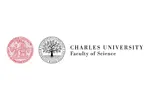We're moving! This site will be relocating to goingto.university in 2026. Please update your bookmarks to the new address.


Czech Republic (the)
Faculty of Science, Charles University| The award | How you will study | Study duration | Course start | Domestic course fees | International course fees |
|---|---|---|---|---|---|
| PhD | Full-time | - | - | - | - |
Project summary
Together with our international partners, we develop numerical tools based on optimal control theory to design experimental techniques with improved performance for magnetic resonance. We focus on applications to solid-state nuclear magnetic resonance (NMR) of biomolecules such as proteins and amyloids. We work to exploit the emerging expertise and technology of ultrafast magic-angle-spinning (MAS) solid-state NMR spectroscopy at high magnetic fields and to streamline its application for daily structural biology routines in academic and industrial settings.
Optimal control allows one to develop completely new magnetization transfer experiments and strategies that are not achievable by any known pulse sequences. An example is heteronuclear transverse magnetization transfer that yields a sensitivity enhancement factor of 1.4 for every indirectly sampled dimension of multidimensional spectra. [1] This possibility of capturing both components of complex data (real and imaginary components) at the same time has revolutionized the prospects of high-dimensional solid-state NMR, shortening the experimental time of a 5D from months to a couple of days. Such high-dimensional spectra are essential for resolving spectral overlap and for obtaining unambiguous assignments of complex protein systems.
This PhD project will concentrate on further development of numerical methods and their implementation in the SIMPSON software package. [2] New pulse sequences for tailored magnetization transfers for ultrafast MAS proton detected high-dimensional spectroscopy will be developed. The project will be conducted in close collaboration with the Technical University of Munich (bio-solid-state NMR) and Aarhus University (SIMPSON), which are both equipped with the latest instrumentation necessary for experimental verification.
The ideal candidate should have programming and mathematical skills and basic knowledge of solid-state NMR.
Contact Faculty of Science, Charles University to find course entry requirements.
Below are some suggested courses at other providers that you may also be interested in:
The Psychology of Creativity – Short Course, Summer School Summer School
Catalyst - Institute for Creative Arts and Technology
Find out moreMaster in Design for Mobility Solutions Master Degree
IAAD. - Institute of Applied Art and Design
Find out moreHealth Psychology Master Degree
Erasmus School of Social and Behavioural Sciences (ESSB), Erasmus University Rotterdam
Find out moreIf you do not meet the entry requirements for this course then consider one of these postgraduate preparation courses from another institution:
Graduate Diploma of Engineering (Electrical Systems)
Engineering Institute of Technology
Find out moreThere are 136 other courses listed from Faculty of Science, Charles University. A selection of these are displayed below:
A postdoctoral position to study thermal effects in landslides Postdoc
Faculty of Science, Charles University
Find out moreActivation of STING signaling in tumors associated with human papillomaviruses PhD
Faculty of Science, Charles University
Find out moreAdvanced Electron Microscopy Techniques for the Characterization of Tunable Zeolitic Architectures PhD
Faculty of Science, Charles University
Find out moreAmphiphilic Peptidomimetics Containing Metallacarboranes as a Design Strategy for Future Antibiotics PhD
Faculty of Science, Charles University
Find out moreJoin the StudyLink email list and never miss a chance to turn your study abroad dreams into reality!
